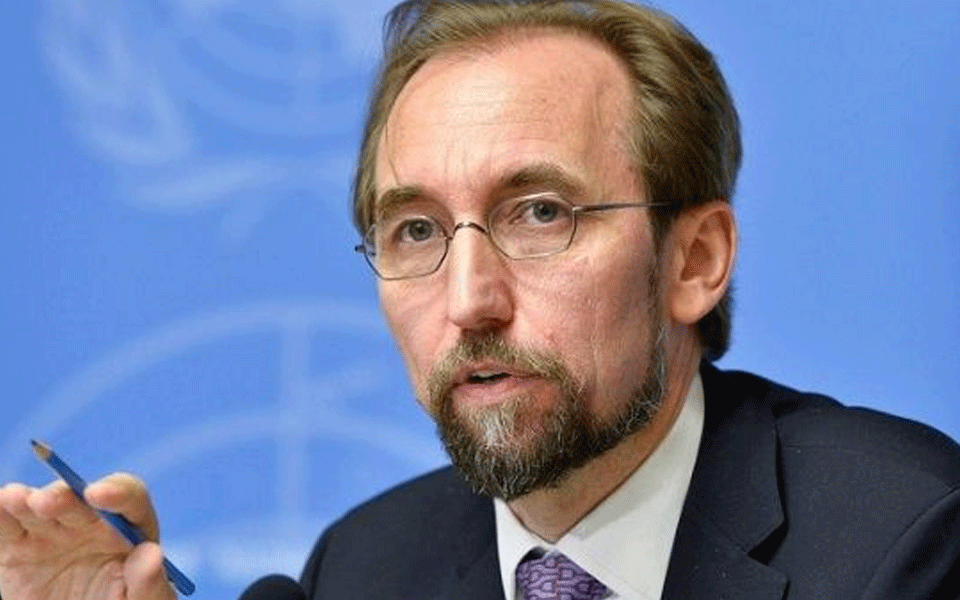New York, Aug 13 : Outgoing UN High Commissioner for Human Rights Zeid Ra'ad al-Hussein has singled out US President Donald Trump's repeated designation of the press as "the enemy of the people", terming it "very close to incitement to violence".
Trump's anti-press rhetoric would lead to journalists censoring themselves or being attacked, said Al-Hussein, a Jordanian prince and diplomat, in an interview to the Guardian daily.
Al-Hussein is stepping down in August from the UN post after deciding not to stand for a second four-year term, in the face of a waning commitment among world powers to fighting abuses.
He said the Trump administration's lack of concern about human rights marked a distinct break with previous administrations and that the US President's own rhetoric aimed at minorities and at the press was "redolent of two of the worst eras of the 20th century", the run-up to the two world wars.
"We began to see a campaign against the media … that could have potentially, and still can, set in motion a chain of events which could quite easily lead to harm being inflicted on journalists just going about their work and potentially some self-censorship," Al-Hussein said.
"And in that context, it's getting very close to incitement to violence."
He said that Trump's example was already being followed elsewhere, giving license to authoritarian leaders to crack down on the media in ways they had not previously dared to, the daily said on Monday.
Al-Hussein pointed to Cambodian leader Hun Sen, who he said had used similar language when he closed down independent media organisations.
"The US creates a demonstration effect, which then is picked up by other countries where the leadership tends to to be more authoritarian (in) character or aspires to be authoritarian."
Al-Hussein has also taken on the Trump administration over its policy of separating children from their parents in migrant families arrested at the border and the US President's own long history of rhetoric aimed at minorities.
"The Trump administration seems to have separated itself from previous administrations in its upholding of human rights globally."
"The administration's failure to appoint an ambassador to the Human Rights Council in Geneva, before withdrawing from the council altogether, Al-Hussein added, was "illustrative of the lack of any deep commitment to the human rights".
His advice to his successor, Michele Bachelet, who has been both a political prisoner and President in her native Chile, was to stay courageous and not to run for a second term.
"I would be very suspicious of any commissioner seeking a second term because I'd wonder what deals are being struck and if they'd been struck they've been struck on the back of victims," he said.
Let the Truth be known. If you read VB and like VB, please be a VB Supporter and Help us deliver the Truth to one and all.
Dubai: Smoke was seen rising from an area near the United States Consulate in Dubai, according to witness accounts cited by Reuters.
There was no immediate official confirmation on the extent of damage or whether there were any casualties in the incident.
Earlier, the US embassy in Riyadh, Saudi Arabia’s capital, was also attacked. Authorities reported damage to the premises, but no casualties were recorded.
The developments come amid heightened tensions in the region, with Iran continuing to target US interests in the Middle East following deadly attacks launched on Saturday by Israel and the United States.
Near US embassy in Dubai pic.twitter.com/z5VTZNVxNO
— Sahil Shah (@thesahilsshah) March 3, 2026





